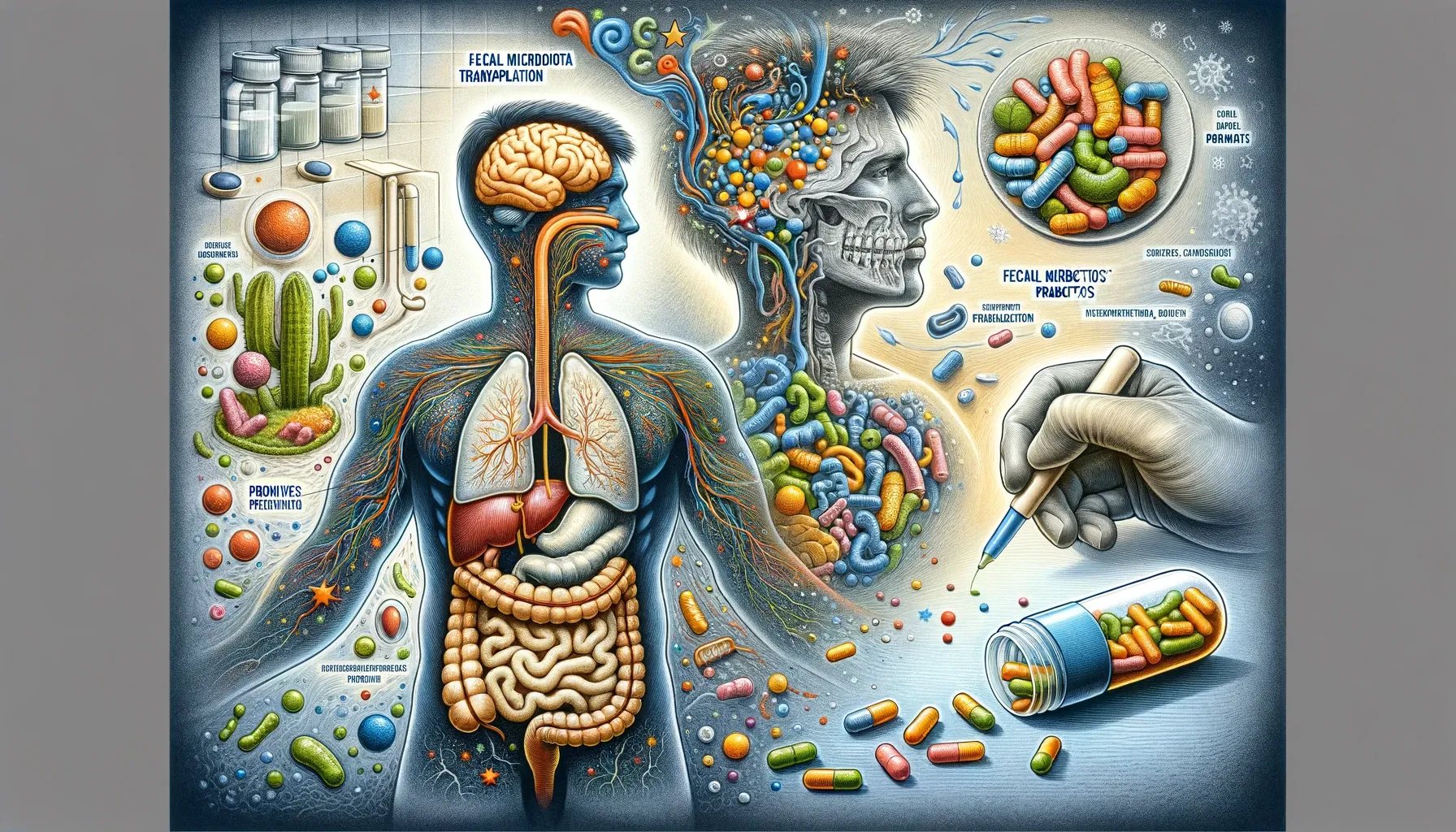Transform Your Health: How Fecal Transplantation and Probiotics Can Revolutionize Parkinson’s Treatment
Parkinson’s disease (PD) is a neurodegenerative disorder that affects millions of people worldwide. Recently, innovative methods like fecal transplantation (FMT) and probiotics have emerged as promising options for the treatment of this disease. Here’s how these approaches can potentially transform your health.
1- Fecal Transplantation (FMT): An Intestinal Revolution
What is FMT? Fecal transplantation involves transferring intestinal microbiota from a healthy donor to a patient. This procedure aims to restore a healthy balance of the gut microbiome, which can have beneficial effects on various aspects of health, including PD symptoms.
Scientific Studies and Results
- GUT-PARFECT Study : A 2024 study showed that Parkinson’s patients who received FMT saw significant improvement in their motor symptoms after 12 months. Scores on the MDS-UPDRS scale showed an average improvement of 5.8 points for the treated group, compared to 2.7 points for the placebo group. This study highlights the potential of FMT to improve motor symptoms of PD ( Neuroscience News ) ( MedXpress ) ( Technology Networks ) .
- Reduction in Non-Motor Symptoms : In addition to improvements in motor symptoms, patients reported a reduction in constipation, a common and bothersome non-motor symptom in people with PD ( MedXpress ) ( Technology Networks ) .
2- Probiotics: A Promising Alternative
Probiotics present themselves as a potentially effective and less invasive alternative to fecal transplantation for the treatment of Parkinson’s disease (PD). They offer several benefits thanks to their ability to modulate the intestinal microbiome. Here’s how probiotics can help and the scientific evidence that supports their use.
Why Probiotics?
Modulation of the Gut Microbiome Probiotics are live microorganisms that, when administered in adequate amounts, can restore a healthy balance of the gut microbiome. The microbiome plays a crucial role in digestion, immunity and inflammation. An imbalance in the gut microbiome, known as dysbiosis, has been linked to many diseases, including PD. Parkinson’s patients often have an alteration in their gut microbiome, which may contribute to inflammation and other symptoms ( BMJ Open ) ( Technology Networks ) .
Anti-Inflammatory and Immunomodulatory Effects Probiotics can reduce intestinal inflammation, which is often present in PD patients. A study published in “Frontiers in Immunology” showed that certain strains of probiotics can modulate immune responses and reduce systemic inflammation, which could benefit patients with neurodegenerative diseases like PD ( BMJ Open ) .
Scientific Studies and Results
- Microbiome Modulation Study A study demonstrated that consuming probiotics containing specific strains, such as Lactobacillus and Bifidobacterium, can help restore a balanced gut microbiome in PD patients. The results showed an improvement in gastrointestinal symptoms and a reduction in intestinal inflammation ( BMJ Open ) .
- Impact on Motor and Non-Motor Symptoms Another research has highlighted that administration of probiotics can not only improve gastrointestinal symptoms, but also have a positive impact on motor and non-motor symptoms of PD. For example, one study found that patients who took probiotics reported a reduction in constipation and an overall improvement in their well-being ( Technology Networks ) .
- Probiotic Clinical Trial An ongoing clinical trial is exploring the effectiveness of probiotics for PD patients. Initial results indicate that probiotics may help improve patients’ quality of life by modulating the gut microbiome and reducing gastrointestinal symptoms common in these patients ( BMJ Open ) .
Benefits of Probiotics
- Less Invasive : Unlike FMT, which requires medical intervention, probiotics can be consumed in the form of dietary supplements, which is much less invasive and more convenient for patients.
- Accessibility and Ease of Use : Probiotics are easily available in pharmacies and can be taken daily to maintain a balanced microbiome. This facilitates their integration into patients’ daily routine.
- Potential for Long-Term Use : Probiotics can be used long-term without the risks associated with invasive procedures, providing a long-lasting solution for managing PD symptoms.
Conclusion
Although research into probiotics for the treatment of Parkinson’s disease is still ongoing, preliminary results are promising. Probiotics offer a potentially effective and less invasive alternative to fecal transplantation. They can help modulate the gut microbiome, reduce inflammation, and improve motor and non-motor symptoms of PD.
